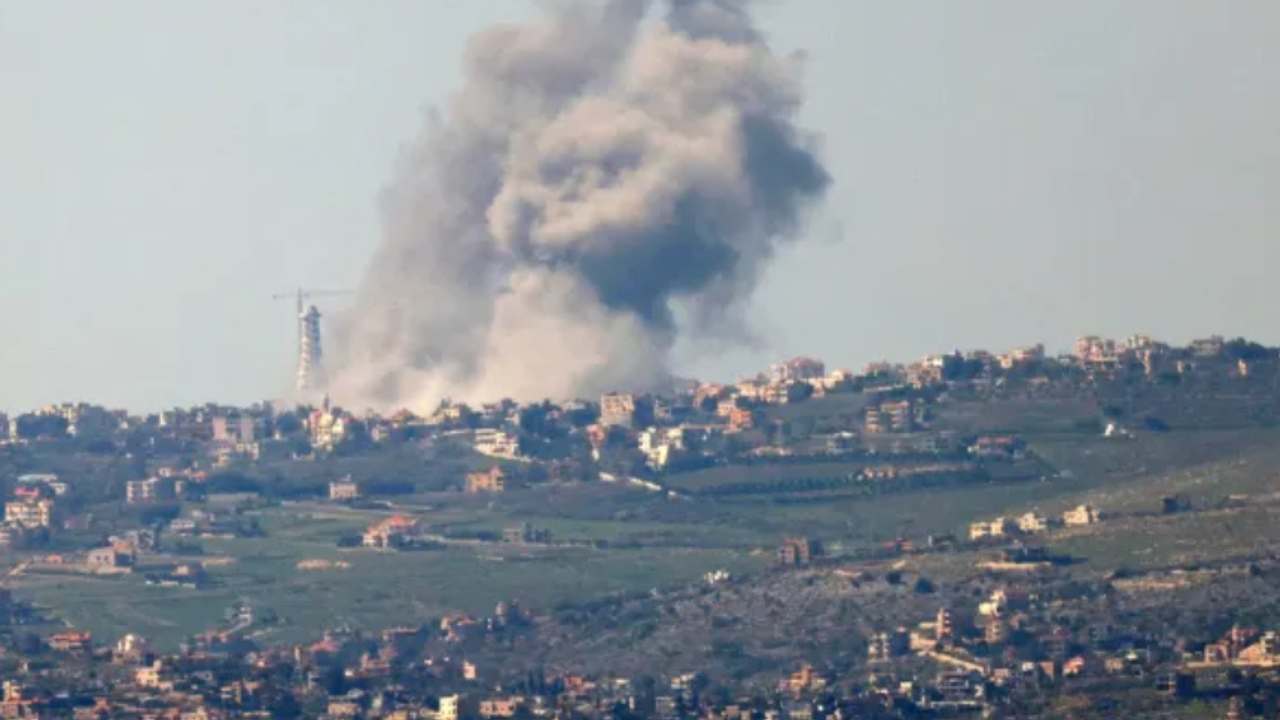American administration and intelligence officials express concern over potential Israeli ground incursion into Lebanon, fearing it may occur in late spring or early summer if diplomatic measures fail to deter Hezbollah from the northern border, as indicated by senior administration officials and individuals with knowledge of the intelligence.
Though a definitive Israeli decision remains pending, apprehension within the Biden administration is palpable enough to warrant the inclusion of the incursion possibility in intelligence briefings for high-ranking officials. One briefed individual was informed of the likelihood of an operation in early summer.
“We are operating in the assumption that an Israeli military operation is in the coming months,” one senior Biden administration official said. “Not necessarily imminently in the next few weeks but perhaps later this spring. An Israeli military operation is a distinct possibility.”
Months of relentless cross-border strikes by Israel and Hezbollah have resulted in daily casualties and forced tens of thousands of Lebanese and Israeli civilians to flee their homes.
Israel’s artillery barrages, air raids, and drone strikes have targeted various sites, while Hezbollah has employed its extensive arsenal of rockets and missiles in retaliation.
Amid ongoing mediation efforts by the US to broker a ceasefire in Gaza, the Biden administration has been engaging in parallel negotiations with Israeli and Lebanese authorities.
The aim is to establish a buffer zone several miles wide within southern Lebanon, a potential agreement that US officials believe could delay any imminent Israeli ground incursion into the region.
“I think what Israel is doing is they are raising this threat in the hope that there will be a negotiated agreement,” said the senior official, who has heard differing opinions within the Israeli government about the need to go into Lebanon.
“Some Israeli officials suggest that it is more of an effort at creating a threat that they can utilize. Others speak of it more as a military necessity that’s going to happen,” the official said.
According to a second senior official from the Biden administration, there are factions within the Israeli government and military advocating for a ground incursion into Lebanon.
This official noted a mounting sentiment among some that suggests, “Hey, let’s just take a shot. Let’s just do it,” cautioning that such an action could trigger a significant escalation, the extent of which is uncertain.
Approximately 80,000 Israelis have been displaced from northern areas since October. The Israeli embassy in Washington emphasized to CNN that Israel is determined not to revert to the pre-war situation, where Hezbollah posed a direct and immediate military threat along the Israel-Lebanon border.

In recent days, Israel has intensified its air campaign, conducting airstrikes deeper into Lebanon. Last week’s strikes reached within 27 miles of the capital Beirut, marking the furthest Israeli military action into Lebanese territory since the violence ensued following the October 7 Hamas attacks in Israel.
On Monday, Israel conducted airstrikes targeting the Hezbollah stronghold of Baalbek in northeastern Lebanon.
“There are fears this will grow to an expansive air campaign reaching much further north into populated areas of Lebanon and eventually grow to a ground component as well,” another person familiar with the US intelligence said.
The US intelligence community has been “ringing alarm bells,” the person added.
Israel’s top general, Lt. Gen. Herzi Halevi, visited the northern border on Tuesday and emphasized that Hezbollah “must pay a heavy price” for its actions since October 7. He stated,
“It’s clear that the first thing we need to do is push back the enemy. Then, create a very strong barrier.”
Shuttle Diplomacy
The White House has appointed special envoy Amos Hochstein to spearhead diplomatic efforts aimed at finding a resolution to the conflict. Hochstein, typically serving as a senior energy advisor, is leveraging his expertise and connections, having previously brokered a maritime agreement between Israel and Lebanon regarding gas exploration.
“If Amos were to successfully negotiate a standoff arrangement, then the probability of a military operation later this year would decline considerably,” the first administration official said. If Hezbollah is pushed back about 10 kilometers, that would take out some of the shorter-range munitions they’ve been using against Israel, the official added.
Hochstein has been actively shuttling between both countries, engaging in discussions complicated by the US policy of not directly engaging with Hezbollah in Lebanon, recognized as the country’s most powerful military force and designated as a terrorist organization by the US.
Israeli airstrikes in Lebanon have posed a challenge, as they have often targeted the US-supported Lebanese army, prompting the administration to urge Israel to reduce such actions.
In a recent meeting in Israel, Hochstein conferred with Defense Minister Yoav Gallant, who expressed readiness to resolve the crisis through diplomatic means but emphasized preparedness for any eventuality.
Creating A Buffer Zone
Progress is evident in negotiations for a ceasefire in Gaza, which could potentially reduce rocket attacks from Hezbollah. However, Israeli officials caution that a Gaza ceasefire alone would not address the underlying issue.
“Even if there is a temporary truce in the south [with Hamas in Gaza], we will increase the fire in the north independently, and we will continue until the complete withdrawal of Hezbollah and the return of the residents to their homes,” Gallant said in a statement Sunday on X.
An agreement solely focused on pushing Hezbollah back from the border might not suffice for Israel, as argued by the first administration official.
A ground incursion could afford Israel the opportunity to “mow the grass” by dismantling Hezbollah’s physical infrastructure in the south, potentially impeding a future resurgence near the border.
Should the invasion not materialize, the official suggested that filling the buffer zone would necessitate the presence of forces from the Lebanese Armed Forces and UN peacekeepers from UNIFIL.
“Whatever kilometer buffer is negotiated will not keep Hezbollah out forever but will provide at least some assurance that they’re not going to return immediately,” they said.






